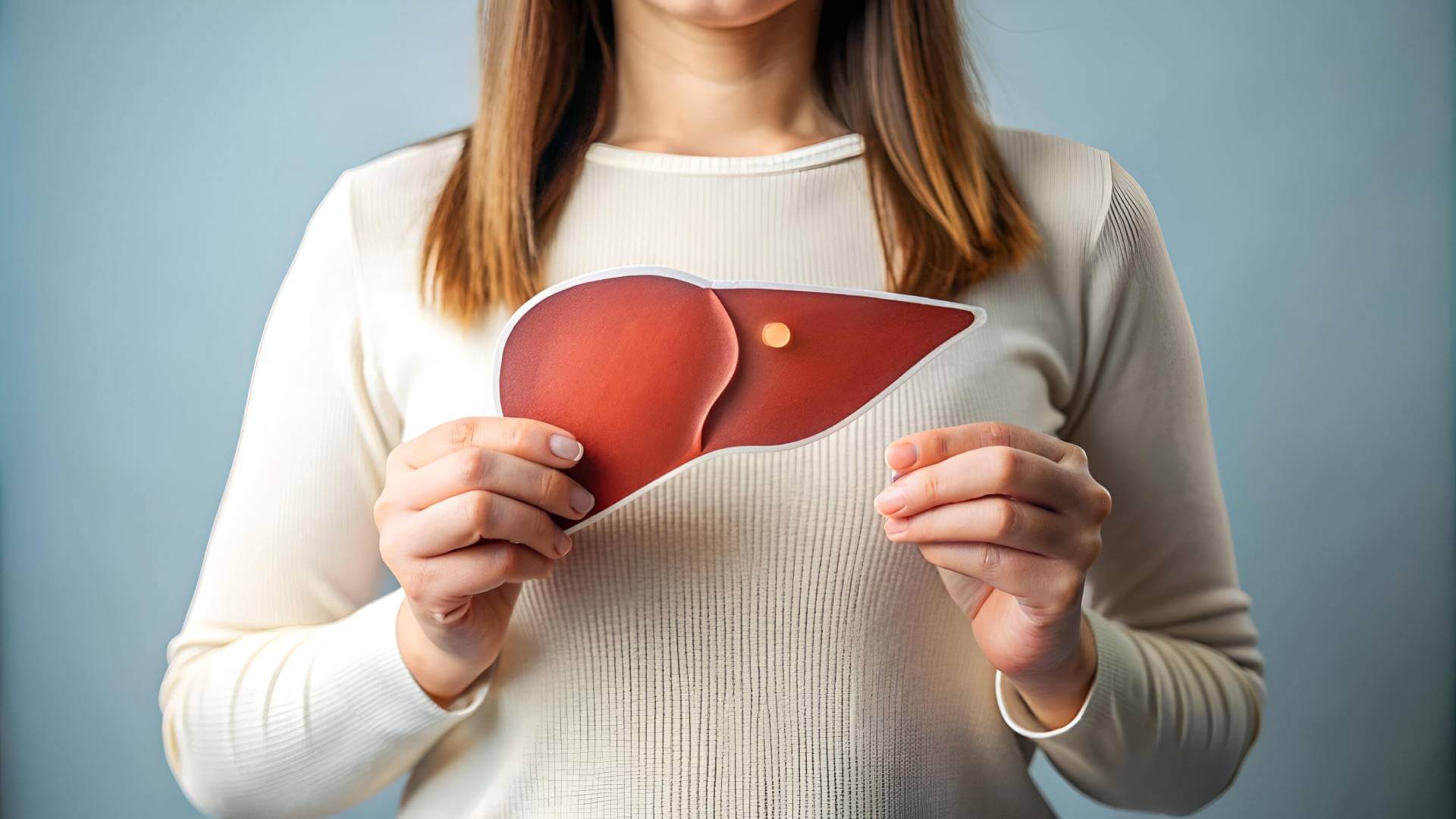What is FibroScan?
FibroScan is a method used by the GI doctors at Arizona Digestive Health to noninvasively evaluate the liver. Also known as transient elastography, the elastography technology uses a specific ultrasound machine to assess the state of fibrosis and steatosis present in the liver. Fibrosis takes place when the liver exchanges healthy tissue with cicatrix (scar) tissue in an attempt to recover itself from a separate condition. Hepatic steatosis is also called fatty change and appears when fat accumulates in the liver cells.
Using FibroScan, your Phoenix, AZ GI doctors can measure the condition and function of your liver, and make a diagnosis and treatment plan without aggressively probing the body to examine the liver. If you have a liver condition, reach out to Arizona Digestive Health to learn if you could benefit from FibroScan technology.

Who is a candidate for FibroScan testing?
FibroScan testing may be favored for patients who have early to progressive liver disease or other situations. These may include:
- NASH or nonalcoholic steatohepatitis
- Primary biliary cholangitis (PBC)
- Cirrhosis of the liver (severe scarring)
- Alcoholic FLD
- Insulin resistance syndrome (syndrome X)
- Hemochromatosis
- Specific types of hepatitis
- different classes of CLD (chronic liver disease)
How is FibroScan conducted?
A FibroScan examination in Phoenix, AZ is generally a comfortable exam that is finished within 10 – 15 minutes. A sensor will be placed on your skin right above your liver. This specific sensor emits sound waves through your liver to gauge the speed where sound travels through the organ. The FibroScan scanner then develops a sequence of results that your Arizona Digestive Health provider will utilize to classify the level of hardening (fibrosis) existing inside of your heptic system (liver).
How do you understand and translate FibroScan results?
FibroScan findings are provided according to steatosis (fatty liver disease) grade of severity and fibrosis score. The subsequent charts are comprised of generic reports regarding what the results of the scan may demonstrate. You may review your results in detail with your Arizona Digestive Health GI physician following your FibroScan scan.
Steatosis grade: The fatty change findings depicts the level of steatosis in the liver and is provided by a controlled attenuation parameter (CAP) score, which is evaluated in dB/m (decibels per meter). The scope is from 100 to 400 dB/m, and assorted ranges contributes to a distinct fatty liver grade.
|
CAP Score (dB/m) |
Steatosis Grade |
Amount of Liver With Fatty Change |
|
238 – 260 |
S1 |
11% – 33% |
|
260 – 290 |
S2 |
34% – 66% |
|
290+ |
S3 |
67%+ |
Fibrosis score: The fibrosis result is a measurement of the scarring of the liver and represents the layer of scarring that the liver has experienced. Your GI physician will use your FibroScan findings combined with your medical records to figure out your fibrosis value. Various liver diseases can affect the fibrosis score.
- F0 to F1: No scarring/minimal scarring
- F2: Moderate scarring
- F3: Severe scarring
- F4: extremely progressive scarring (cirrhosis)
What are the advantages of FibroScan?
Because FibroScan utilizes ultrasound technology, there is very little to no risk associated with the method. FibroScan is a noninvasive imaging practice and for that reason, it is typically not uncomfortable. It allows for a broader examination of the entire liver rather than looking into a smaller minor section like with a liver biopsy. Moreover, no sedation is required for the procedure, it is relatively affordable, swiftly accomplished, and the outcomes are immediate.
FibroScan® FAQs
What liver concerns can FibroScan assess?
Your FibroScan can discover and record the progression of a range of liver conditions, including:
- NAFLD (nonalcoholic fatty liver disease)
- Alcoholic liver disease
- NASH (non-alcoholic steatohepatitis)
- Hepatitis B and C
- Hemochromatosis
What is the difference between an ultrasound and the FibroScan?
The FibroScan process is a variation of ultrasound and uses the same technology a typical ultrasound uses (transient elastography). While the two are alike, FibroScan was created primarily to measure the stiffness of the liver and is, therefore, perceptibly more sensitive to detecting issues within the liver than a simple ultrasound.
Is FibroScan more advanced than a liver biopsy?
FibroScan is an excellent nonsurgical and minimally invasive option for a liver biopsy. It should be noted, however, that there can be certain situations where a liver biopsy might be favored. This could include circumstances when a person has a pacemaker or defibrillator, is pregnant, or has fluid in their abdomen. It’s also been discovered that results could become incorrect in people who are considered obese. Therefore, our Arizona Digestive Health team will work alongside you to help determine if FibroScan or a standard liver biopsy is right for you.

